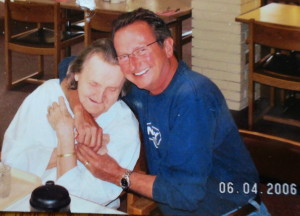Liz Black often believes she’s in an airport terminal, delayed and frustrated. Or she’s lost in a busy department store.
But the turmoil has nothing to do with air traffic or shopping. Black, 83, is wheelchair bound and lives in a memory care unit in a skilled nursing facility in Spokane.
The retired anthropologist and former museum director is riddled with dementia.
“She has no idea what’s going on in her life,” said Lorna Walsh, Black’s daughter.
Despite nearly $350,000 in savings and investments, a home and a pension, Black is going broke.
It costs about $7,750/month for her round-the-clock care. Black only has about $20,000 left.
Once that money is gone, Black will qualify for Medicaid, the state’s safety net.
Like many Washingtonians, Black had planned to use her life savings to pass along to another generation. Black was planning to help her granddaughter go to veterinary school. Now, the money is all but spent.
“Her assets are almost gone,” Walsh said.
Black was living independently as a widow, running her home and sharing it with dogs. All that changed several years ago when Walsh said she found her mom nearly naked on the kitchen floor in a state of confusion.
“She didn’t realize where she was,” Walsh recalls. “She couldn’t place herself.”
Black also lost her ability to walk and the combination meant that she’d require skilled care in a nursing home.
Today, she’s physically healthy but mentally unbound.
She often doesn’t know where she is. She believes her wheelchair is a fax machine. She’s haunted by old memories and sometimes believes she’s woefully behind studying for a college exam that would have taken place many decades ago.
“She can go on like this for some time,” Walsh said. “It’s a bizarre world we walk into (when we visit).”
In addition to the emotional toll of witnessing her mother’s decline, the financial struggle also has been a challenge.
“We never thought we’d be in this position, ever,” Walsh said. “It never occurred to me that her medical insurance wouldn’t cover this.”
Having the Medicaid safety net there is a very good thing, Black’s daughter said.
Still, “It is sad that you have to give up everything you worked for in your life to qualify,” Walsh added.


